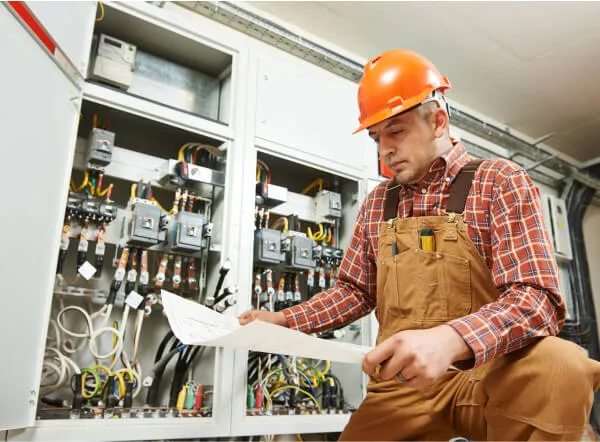Instrumentation Technology

The manufacturing industry relies on instrumentation and automation systems to create a variety of consumer products. Read about instrumentation technology here, including the certificate and degree programs that can help you prepare for a job as an electrician or instrumentation technician.
<h2 id="section---IsInstrumentationTechnologyRightForMe">Is Instrumentation Technology Right for Me?</h2>
<h3 id="section---CareerOverview">Career Overview</h3>
<p>The instrumentation technology field provides critical automation, measurement and process control services to a number of industries. Automation systems, such as packaging control units in the food processing industry, make the production process simpler and less prone to error. Automation and instrumentation systems are complicated and require personnel with knowledge of measuring and testing procedures, circuitry, electronics and electricity. Specialists in the field measure a number of variables, including temperature, liquid levels and pressure to ensure the efficient functioning of equipment.
</p>
<h3 id="section---CareerOptions">Career Options</h3>
<p>Instrumentation professionals work in many industries, including food processing, mining and public utilities. Specialists work at wastewater treatment plants, power generation facilities or in mineral technology. You can also obtain work in installation and maintenance. For example, you might hold a position as an automation or <a href="https://learn.org/articles/What_is_a_Control_Systems_Technician.html">control systems technician</a>, <a href="https://learn.org/articles/Electrician_Job_Duties_Employment_Outlook_and_Educational_Requirements.html">electrician</a> or <a href="https://learn.org/articles/What_Does_an_Instrumentation_Technician_Do.html">instrumentation technician</a>.
</p>
<h3 id="section---TechnicalDuties">Technical Duties</h3>
<p>Maintenance electricians are responsible for the repair of broken electrical and electronic components. Specialists in this area may repair or replace switches, wiring and fuses that power industrial systems. Automation technicians use a logical diagnosis process and computer technology to isolate, identify and fix system problems. Instrumentation and control technicians calibrate, modify and inspect control systems to ensure efficient and safe functioning, as well as perform preventive maintenance when all systems are in working order.
</p>
<h3 id="section---SalaryInformation">Salary Information</h3>
<p>According to <i>Salary.com</i> in June 2014, the median annual salary for an instrumentation technician was $43,969. As reported by the U.S. Bureau of Labor Statistics (BLS) in May 2013, electricians in general earned a median annual wage of $50,510 (<i>www.bls.gov</i>).
</p>
<h2 id="section---HowCanIWorkInInstrumentationTechnology">How Can I Work in Instrumentation Technology?</h2>
<h3 id="section---CertificateAndDegreePrograms">Certificate and Degree Programs</h3>
<p>Opportunities are available to those with extensive experience in a field related to instrumentation technology; however, many employers seek candidates with a postsecondary education. For example, some colleges and technical schools offer certificate and degree programs in instrumentation technology and <a href="https://learn.org/articles/Automation_Engineering_Degrees_Online_and_Campus-Based_Program_FAQs.html">automation engineering</a>. As an aspiring <a href="https://learn.org/articles/What_are_the_Required_Classes_to_Become_an_Instrumentation_Technician.html">instrumentation technician</a> enrolled in a certificate program, you may complete up to 32 credit hours of coursework in industrial process instrumentation, basic electronics and maintenance. Lab work can also provide you with the chance to gain some hands-on experience.
</p>
<p>Advanced certificate programs offer courses in electrical and electronic systems documentation, process measurement, automation theory and safety procedures. If you pursue an automation engineering program, you'll study electrical systems, electronic controls, control theory and mechanisms; you'll also learn about fluid power and system troubleshooting.
</p>
<h3 id="section---ApprenticeshipsAndLicensingForElectricians">Apprenticeships and Licensing for Electricians</h3>
<p>Most aspiring electricians gain the necessary skills through 4-year or 5-year apprenticeships offered by trade unions and other professional organizations. In most states, electricians need to be licensed, which usually entails meeting education and experience requirements, along with successfully completing an exam.
</p>
<h3 id="section---RequiredSkills">Required Skills</h3>
<p>If you're interested in instrumentation technology, you'll need to know how to test, diagnose and repair various control systems and electrical components. Above-average computer skills and the ability to effectively communicate complicated information are also key to working in the field.</p>


.svg)